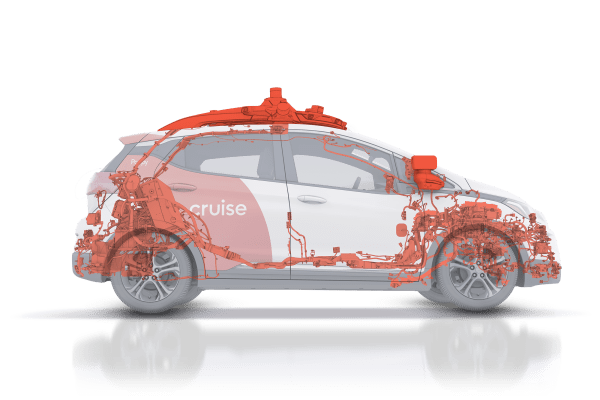

Cruise, the autonomous vehicle company aiming to deploy robotaxis in San Francisco and Dubai, has added Walmart as an investor in an extended fundraising round that has grown to $2.75 billion.
The company said it has a post-money valuation of more than $30 billion. Walmart and several unnamed institutional investors added capital to a $2 billion equity round announced back in January that was led by Microsoft. The companies didn’t disclose Walmart’s exact investment. Cruise, the autonomous vehicle subsidiary of GM, is also backed by Honda, Softbank Vision Fund and funds managed by T. Rowe Price.
Cruise has long been viewed — and described itself — as a company solely focused on launching a commercial scale robotaxi service. However, comments from Walmart CEO John Furner in a blog post published Thursday suggest that laser focus continues to widen beyond robotaxis and San Francisco.
“The investment will aid our work towards developing a last-mile delivery ecosystem that’s fast, low-cost and scalable,” Furner wrote. He later wrote “this investment is a marker for us.”
Cruise has experimented with delivery over the past several years even as its efforts around robotaxis took most of its attention and resources. For instance, Cruise and DoorDash completed in 2019 a delivery pilot in San Francisco. And when the COVID-19 pandemic swept into North America, prompting government lockdowns, Cruise paused its testing in San Francisco and started delivering prepared meals for two food banks.
Walmart and Cruise also already have a relationship. The companies announced in November 2020 plans to test grocery delivery in Scottsdale, Arizona. Under the pilot program, the companies said that customers will be able to place an order from their local Walmart store and have it delivered via one of Cruise’s autonomous, electric Chevy Bolt cars. While the vehicles will operate autonomously, a human safety operator will always be behind the wheel.
Cruise is not Walmart’s only autonomous dancing partner. The retail giant has partnered with a handful of autonomous vehicle developers, including Waymo, to test how the technology might eventually be used at a commercial scale. The retailer signed a deal in 2019 with startup Udelv to test the use of autonomous vans to deliver online grocery orders to customers in Surprise, Arizona. Autonomous delivery startup Nuro launched a pilot program with Walmart in Houston in 2020.
The retail giant participated in a pilot with Postmates and Ford in the Miami-Dade area and last year the retailer tapped AV startup Gatik to deliver customer online grocery orders from Walmart’s main warehouse to its neighborhood stores in Bentonville, Arkansas.

